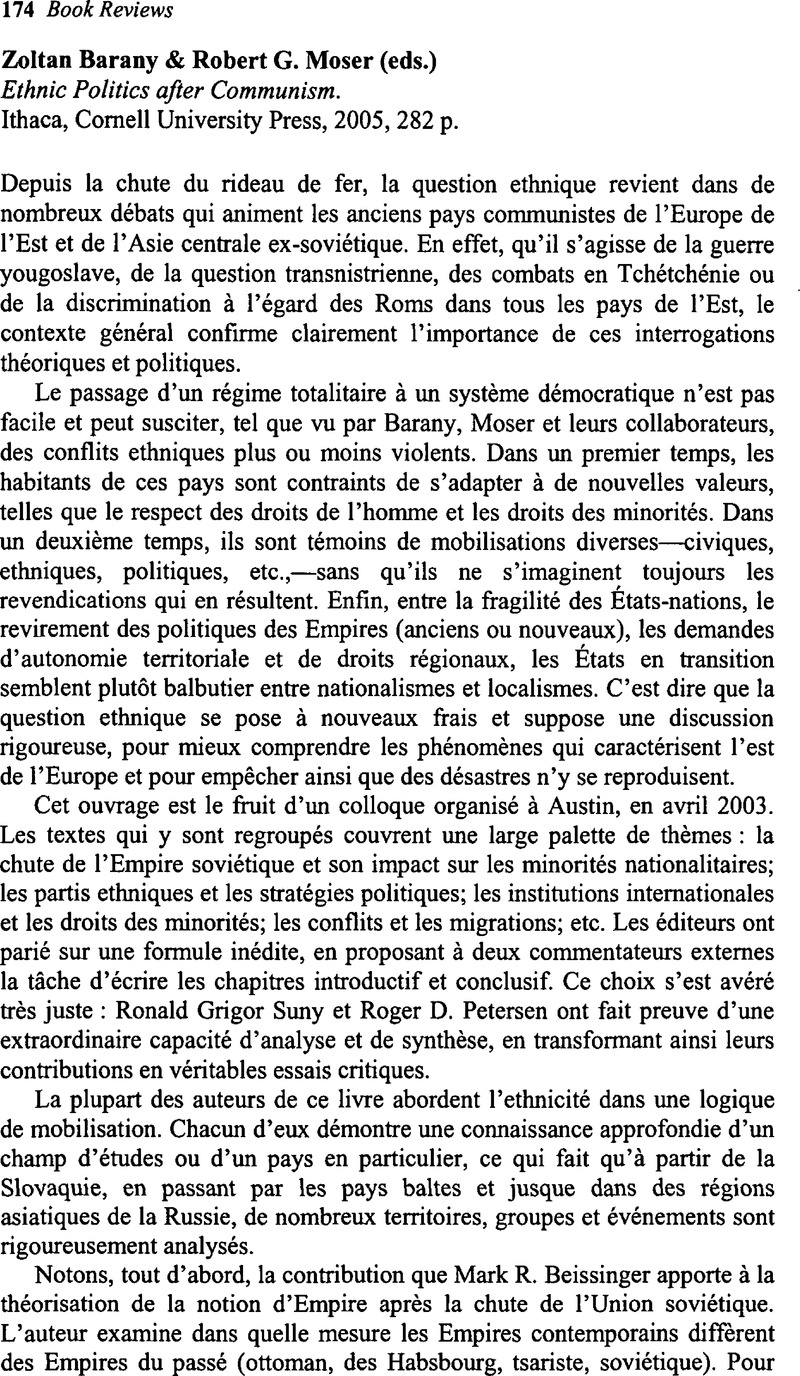No CrossRef data available.
Published online by Cambridge University Press: 18 July 2014

1 En anglais, Hungarian Status Law ou, plus exactement, Act on Hungarians Living in Neighbouring Countries. Pour le texte de la loi, voir European Commission for Democracy Through Law, The Protection of National Minorities by Their Kin-State, Strasbourg: Council of Europe Publishing, 2002 Google Scholar.
2 Herzfeld, M., Cultural Intimacy. Social Poetics in the Nation-State, 2e éd., New York: Routledge, 2005 à la p. 29 Google Scholar.
3 Burawoy, M. et Verdery, K., eds., Uncertain Transition: Ethnographies of Change in the Postsocialist World, Lanham: Rowman & Littlefield Publishers, 1999 Google Scholar.
4 Voir, par exemple, Linz, J.J. & Stepan, A., Problems of Democratic Transition and Consolidation: Southern Europe, South Africa and Post-Communist Europe. Baltimore: Johns Hopkins University Press, 1996 Google Scholar.
5 C'est le cas notamment de la Croatie et de la Roumanie.